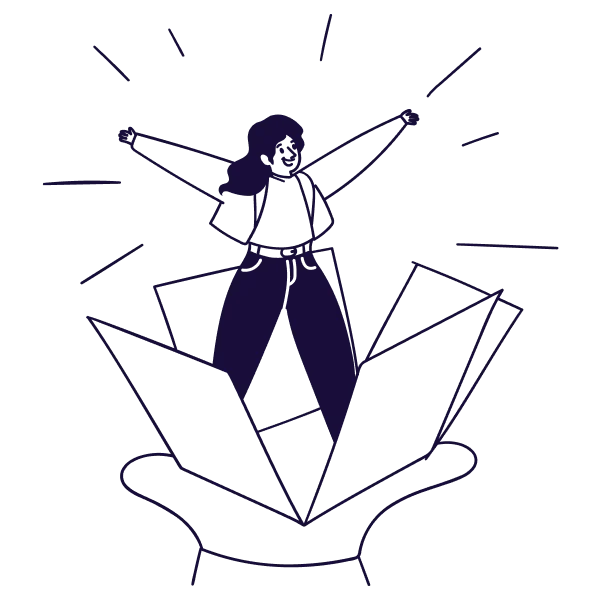Anna had almost given up. For years, she suffered from severe depression and desperately searched for a solution. Medication, psychotherapy, alternative treatment approaches – nothing helped her permanently. Her depression proved to be therapy-resistantBut then she found the Ketamine-assisted therapy a new path.
When nothing helps – New hope for treatment-resistant depression
Anna is not an isolated case. About one-third of all depression patients do not respond to standard therapyFor these people, a targeted combination of Ketamine infusions, repetitive transcranial magnetic stimulation (rTMS), psychotherapy, neurofeedback and hypnosis be a real chance for healing.
What is treatment-resistant depression?
Table of contents
From a treatment-resistant depression one speaks when at least two different antidepressants over a sufficient period of time in an appropriate dosage do not improve symptoms. It is estimated that this affects 15 to 20 percent of all people with depression.
However, this definition refers exclusively to drug treatment with antidepressants such as SSRIs or tricyclic antidepressantsOther forms of therapy are not taken into account, although modern neuromodulation and innovative treatment methods are often successful in treating treatment-resistant depression.
Untreated, chronic depression leads to immense loss of quality of lifeIn addition to emotional suffering, the risk for chronic pain, anxiety disorders, suicidal thoughts and social isolation. The World Health Organization (WHO) estimates that worldwide 300 million people suffer from depression, of which about 90 million do not respond to standard therapies.
Your path to healing – Las Almas helps
therapy overview
Ketamine – A new path to healing
Ketamine was originally developed as anesthetic developed, but in recent years has become one of the most effective treatments for treatment-resistant depression proven. Already after a single infusion Many patients can noticeable improvement in symptoms experience.
How does ketamine work for depression?
Ketamine affects the Neuroplasticity of the brain, the ability to create new neural connections. Depression is often associated with reduced neuroplasticity, which is why conventional treatments are sometimes ineffective.
The combination of Ketamine with rTMS, hypnosis, psychotherapy and neurofeedback ensures lasting improvement and helps many patients who have not found relief so far.
The Treatment Process at Las Almas – 3 Steps to Healing
Our treatment is based on a holistic, evidence-based approach, which is individually tailored to each patient. The process includes three central steps that enable effective and sustainable improvement of symptoms.

Individual diagnostics & initial consultation
Intensive therapy & neuromodulation
aftercare & sustainable stabilization
Goal: A sustainable improvement so that you can once again take part in everyday life full of joy and energy!
Why do we administer ketamine infusions and not nasal spray?
Ketamine can be administered intravenously or as a nasal spray. intravenous administration (IV) but offers numerous advantages:
Higher bioavailability: When absorbed directly into the bloodstream, ketamine has a significantly stronger effect than when administered as a nasal spray.
Faster effect: The effects usually start within 40 minutes a.
Fewer side effects: IV ketamine is often better tolerated and reduces side effects such as nasal mucosal irritation or nausea.
More precise dosage: The individual dose can be precisely adjusted.
In our clinic we therefore rely exclusively on IV ketamine infusionsto ensure maximum effectiveness.
Combination therapy – Why multiple methods work better
Ketamine alone is not a miracle cure. Without a sustainable psychotherapeutic support The effect often wears off after a few weeks. That is why we rely on a holistic combination therapywhich sustainably stabilizes the brain.
Our multimodal treatment includes:
1. Ketamine-assisted psychotherapy
Ketamine improves the Learning and memory skillsso that patients can better prepare for cognitive restructuringHypnosis and depth psychological approaches help to release emotional blockages.
2. Repetitive transcranial magnetic stimulation (rTMS)
Through targeted Magnetic pulses Underactive brain areas that are important for mood regulation are stimulated. rTMS has been shown in studies to one of the most effective alternatives to drug therapy proven.
3. Neurofeedback & HRV biofeedback
These methods enable targeted control of brain waves, which balances emotional dysregulation. Patients learn to self-regulate and minimize their stress reactions.
4. Intensive psychotherapy
Therapies such as Behavioral therapy, EMDR or systemic approaches ensure a long-term restructuring of negative thought patterns.
5. Sports and exercise therapy
Studies show that physical activity can be as effective as antidepressantsOur exercise program promotes Neuroplasticity and improves general well-being.
Who is this treatment suitable for?
Our therapy is aimed at people who have already tried various treatment approaches but have achieved little or no success. It is particularly suitable for:
✔ Treatment-resistant depression – If at least two antidepressants have not been effective.
✔ Severe depression with suicidal thoughts – Ketamine can produce drastic improvements within hours.
✔ Postpartum depression – Alternative to medications that could affect breast milk.
✔ Depression in combination with anxiety disorders or obsessive-compulsive disorders – Our treatment approaches help to specifically resolve emotional blockages.
therapy methods
therapeutic approach against depression
Scientific studies
Your path to healing – book an appointment now!
Address Almas Institute
contact
Mail: info@lasalmasgroup.com
working hours
Sundays and public holidays: Closed



